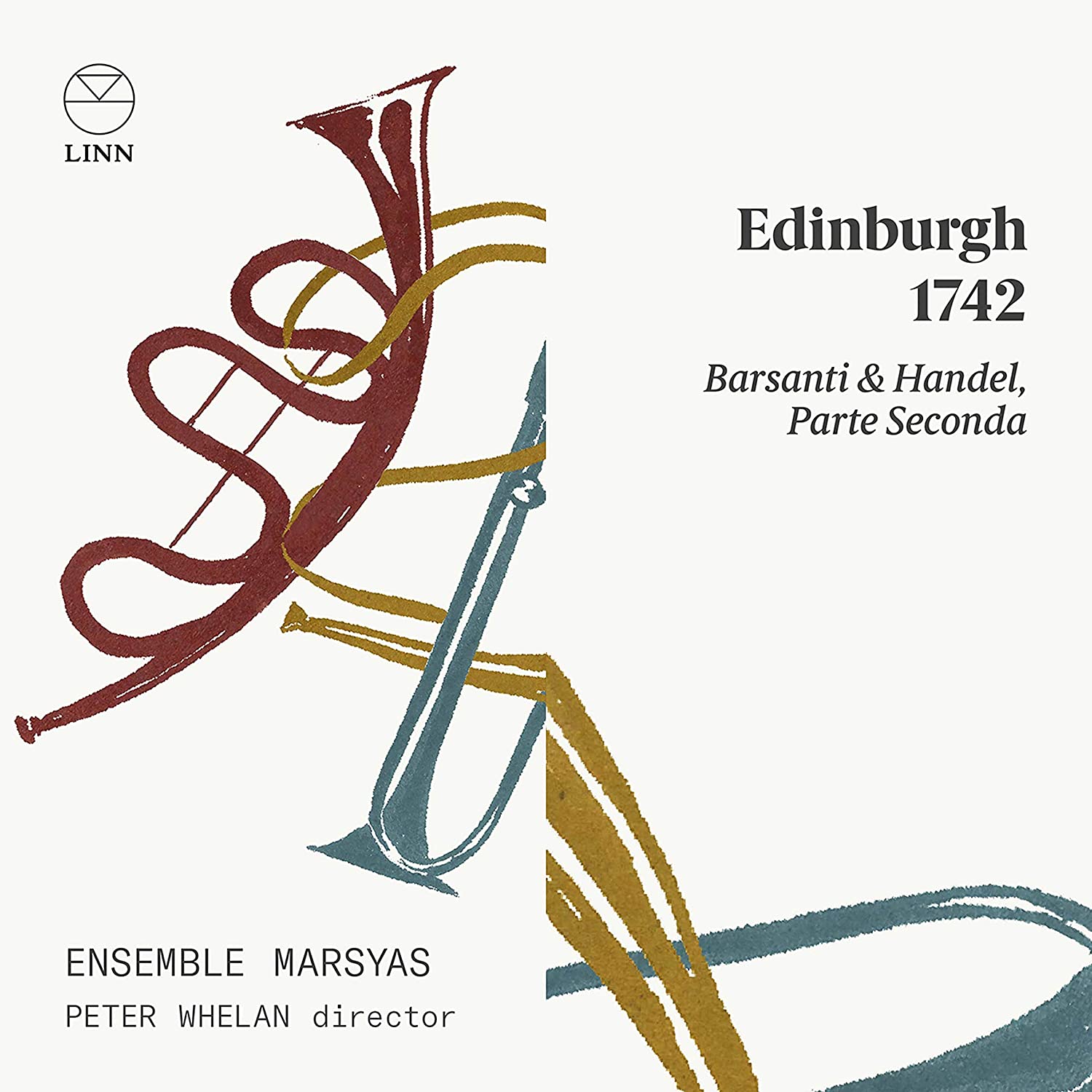Ensemble Marsyas, Peter Whelan
51:51
Linn Records CKD 626
Click HERE to buy this on amazon.co.uk
This is the second of a pair of CDs evoking the lively world of the 18th-century Musical Society of Edinburgh and bringing us the balance of Barsanti’s op 3 Concerti Grossi, those featuring solo trumpet and two oboes, as well as another four of his Old Scots Tunes and music by Handel. Barsanti’s treatment of the wind instruments in these Concerti Grossi, published in Edinburgh in 1742 just before the Jacobite Uprising, sounds very classical in style, alternating them as a section augmented by timpani with the strings. Perhaps more innovative still and unexpected are the more structurally free slow movements. The four Old Scots Tunes are charmingly played by Colin Scobie – a member of the Maxwell and Fitzwilliam Quartets, in encore slots Colin frequently demonstrates his considerable traditional fiddle skills, and these are very much to the fore here as he is joined by Elizabeth Kenny on the Baroque Guitar for stirring accounts of ‘Dumbarton’s drums’, ‘Ettrick banks’, ‘The bush aboon Traquair’ and ‘Cornriggs are bonnie’. Handel’s Overture to ‘Atalanta’ serves to illustrate a very different treatment of the trumpet and indeed a very different style of composition, notwithstanding that Handel and Barsanti were contemporaries and acquaintances. These works by Barsanti, in an edition from Prima la Musica, provide a valuable counterbalance to our sometimes Handel-dominated and London-centric view of the mid 18th century, and it would be interesting to hear accounts of his later publications, which include a set of six motets for five or six voices and continuo (1750) and his Trio Sonatas op 6 (1769). On first listening, I found the recorded sound a little cramped, but then the Musical Society concerts were presented in the ‘upper room of St Mary’s Chapel, Niddry Wynd’ until 1763 when they moved into the superb surroundings of St Cecilia’s Hall. At any rate, I soon adapted my ear, and the amount of detail captured in the recordings is indeed impressive.
D. James Ross
